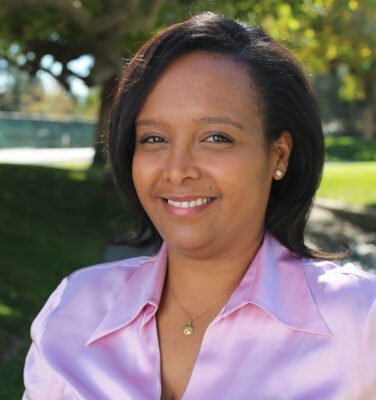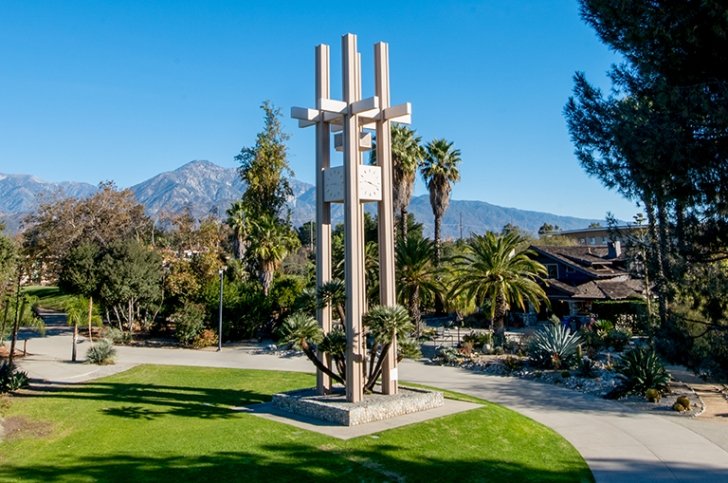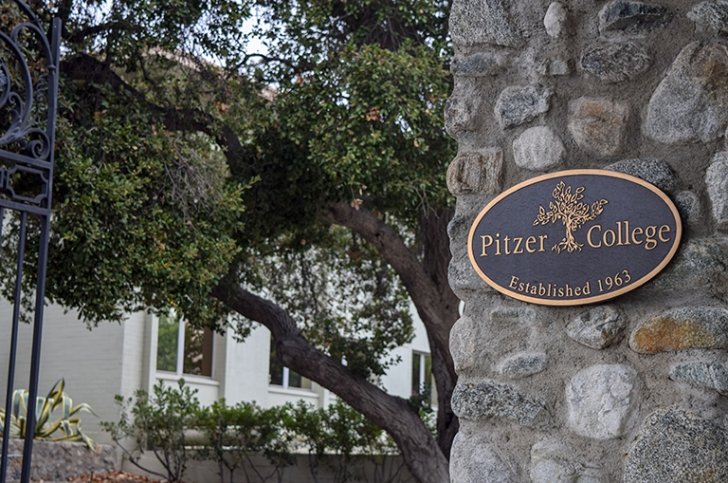Menna Bizuneh Chosen as First American Council on Education Fellow from Pitzer College
Professor Menna Bizuneh tapped for the American Council on Education Fellows Program—a highly prestigious and competitive program that immerses recipients in intensive training to grow as leaders in higher education.
The American Council on Education (ACE) has named Associate Professor of Economics Menna Bizuneh as an ACE Fellow for academic year 2023–24. Bizuneh joins 35 other Fellows who were selected after being nominated by the senior administration of their institutions and undergoing a rigorous application process.

Click here for a full list of this year’s Fellows.
Since 1965, the ACE Fellows Program has strengthened institutions in American higher education by preparing more than 2,500 faculty, staff, and administrators for senior positions in college and university leadership through its distinctive and intensive cohort-based mentorship model.
Of the Fellows who have participated to date, the vast majority have gone on to serve as chief executive officers, chief academic officers, other cabinet-level positions, and deans.
Bizuneh is the first member of the Pitzer College faculty to receive this fellowship.
“I am honored to have the opportunity to be the first ACE fellow from Pitzer College,” Bizuneh said. “I look forward to learning from other leaders about agile and innovative approaches to the constantly changing higher education landscape while staying true to our core values.”
A Career Focused on Sustainable Excellence
Bizuneh serves as director of the Claremont Faculty Leadership Program (CFLP) and as the inaugural chair of the Advisory Council to the Board of Directors of the ACE Women’s Network-Southern California. She also serves as the chair of Pitzer’s Faculty Executive Committee.
Originally from Ethiopia, Bizuneh conducts research and scholarship in the field of international finance, in particular the formation of and the decision to join monetary unions. Bizuneh also conducts research pertaining to pedagogy in economics and is a recipient of the Consortium on High Achievement and Success (CHAS) Pedagogy grant.
Prior to Pitzer, Bizuneh was an assistant professor of economics at the College of St. Benedict/St. John’s University. Bizuneh’s experience outside academia includes working for a consulting firm, Mather Economics, and the African Development Bank. She earned a doctorate in Economics from Georgia State University and a master’s in Economics from the University of Illinois at Urbana-Champaign. She also holds a bachelor’s degree in Industrial and Systems Engineering from Georgia Institute of Technology and a bachelor’s degree in Economics from Emory University.
For Pitzer Interim President Jill Klein P’15, Bizuneh is the ideal choice for the ACE Fellowship.
“Menna has already distinguished herself as a faculty leader and mentor,” Klein said. “I anticipate that, as a returning ACE Fellow, Menna will expand her leadership at Pitzer and across the Consortium.”
Klein added that she is especially thrilled that Bizuneh will spend her time as an ACE Fellow working with partner institutions to discover how they make decisions and practice shared governance that ensures sustainable excellence in the 21st century.
“Menna intends to focus on how colleges can increase institutional capacity for funding,” Klein said. “This is not simply traditional advancement but more importantly how grants from foundations and philanthropies can accelerate the College’s ability to offer more programs, fund students for research and travel, and develop faculty scholarship.”
The ACE Fellows Experience
The program combines retreats, interactive learning, visits to campuses and other higher education-related organizations, and placement at another higher education institution to condense years of on-the-job experience and skills development into a single year.
During the placement, Fellows observe and work with the president and other senior officers at their host institutions, attend decision-making meetings, and focus on issues of interest. Fellows also conduct projects of pressing concern for their home institutions and seek to implement their findings upon completion of the fellowship placement.
At the conclusion of the fellowship year, Fellows return to their home institutions with new knowledge and skills that contribute to capacity-building efforts, along with a network of peers across the country and abroad.
For Bizuneh, the Fellows program offers a one-of-a-kind experience in higher education leadership.
“Through this program,” she said, “I hope to grow as an institutional leader and to make a difference at a larger scale at a place that is making a difference.”
News Information
Published


